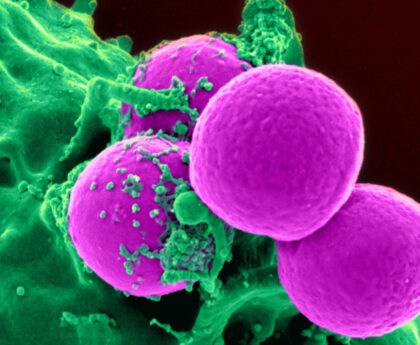Mental Health Awareness
Mental health is a critical aspect of our overall well-being, yet it often remains overlooked or misunderstood. With the increasing prevalence of mental health issues worldwide, raising awareness and promoting understanding is more important than ever. This blog post delves into the importance of mental health awareness, the common misconceptions surrounding mental health, the impact of stigma, and practical steps we can take to foster a more supportive and informed society.
Understanding Mental Health
What is Mental Health?
Mental health encompasses our emotional, psychological, and social well-being. It affects how we think, feel, and act, influencing how we handle stress, relate to others, and make decisions. Mental health is essential at every stage of life, from childhood and adolescence through adulthood.
Common Mental Health Disorders
- Anxiety Disorders: These include generalized anxiety disorder, panic disorder, social anxiety disorder, and specific phobias. Anxiety disorders involve excessive fear or worry that interferes with daily activities.
- Mood Disorders: These include major depressive disorder, bipolar disorder, and cyclothymic disorder. Mood disorders are characterized by persistent feelings of sadness or extreme mood swings.
- Psychotic Disorders: These include schizophrenia and schizoaffective disorder. Psychotic disorders involve distorted thinking and awareness, such as hallucinations and delusions.
- Eating Disorders: These include anorexia nervosa, bulimia nervosa, and binge-eating disorder. Eating disorders involve preoccupation with food, body weight, and shape, leading to unhealthy eating habits and behaviors.
- Personality Disorders: These include borderline personality disorder, antisocial personality disorder, and narcissistic personality disorder. Personality disorders involve enduring patterns of behavior, cognition, and inner experience that deviate significantly from cultural expectations.
- Obsessive-Compulsive Disorder (OCD): OCD is characterized by uncontrollable, recurring thoughts (obsessions) and behaviors (compulsions) that the individual feels compelled to repeat.
- Post-Traumatic Stress Disorder (PTSD): PTSD is a condition that can develop after exposure to a traumatic event, leading to flashbacks, nightmares, and severe anxiety.
The Importance of Mental Health Awareness
Early Intervention and Prevention
Raising awareness about mental health can lead to early intervention and prevention. Recognizing the signs and symptoms of mental health issues allows individuals to seek help before their condition worsens. Early intervention can significantly improve outcomes and prevent long-term consequences.
Reducing Stigma
Stigma surrounding mental health can prevent individuals from seeking the help they need. By promoting mental health awareness, we can challenge misconceptions, reduce prejudice, and encourage open conversations. This can create a more accepting environment where individuals feel comfortable discussing their mental health struggles.
Improving Access to Care
Awareness campaigns can highlight the importance of mental health services and advocate for better access to care. This includes increasing the availability of mental health professionals, providing affordable treatment options, and integrating mental health care into primary health care systems.
Enhancing Quality of Life
Mental health awareness can improve the overall quality of life for individuals and communities. By addressing mental health issues and promoting well-being, we can enhance productivity, strengthen relationships, and foster resilience.
Common Misconceptions About Mental Health
Mental Health is Not Important
One of the most pervasive misconceptions is that mental health is less important than physical health. In reality, mental health is equally important and interconnected with physical health. Poor mental health can lead to physical health problems, and vice versa.
Mental Health Issues are Rare
Mental health issues are more common than many people realize. According to the World Health Organization (WHO), one in four people will experience a mental health disorder at some point in their lives. Awareness helps highlight the prevalence of mental health issues and the need for support and resources.
People with Mental Health Issues are Weak
Mental health issues are not a sign of weakness or a character flaw. They are medical conditions that require appropriate treatment and support. Promoting this understanding can reduce stigma and encourage individuals to seek help without feeling ashamed.
Mental Health Issues are Permanent
With the right treatment and support, many individuals with mental health issues can recover and lead fulfilling lives. Therapy, medication, lifestyle changes, and social support can all contribute to recovery and well-being.
Only Adults Experience Mental Health Issues
Mental health issues can affect individuals of all ages, including children and adolescents. Early detection and intervention are crucial for young people to ensure they receive the support they need to thrive.
The Impact of Stigma
Barriers to Seeking Help
Stigma creates significant barriers to seeking help. Fear of judgment, discrimination, and social exclusion can prevent individuals from reaching out for support. This can lead to untreated mental health issues and a worsening of symptoms.
Social Isolation
Stigma can lead to social isolation, as individuals with mental health issues may withdraw from social interactions to avoid negative judgments. This isolation can exacerbate feelings of loneliness and depression.
Discrimination
Discrimination against individuals with mental health issues can occur in various settings, including the workplace, education, and healthcare. This can limit opportunities and access to resources, further hindering recovery and well-being.
Self-Stigma
Internalized stigma, or self-stigma, occurs when individuals with mental health issues adopt negative beliefs about themselves. This can lead to low self-esteem, reduced self-efficacy, and a reluctance to seek help.
Promoting Mental Health Awareness
Education and Training
Educational programs and training can increase awareness and understanding of mental health issues. Schools, workplaces, and community organizations can implement mental health education to promote early detection, reduce stigma, and encourage help-seeking behavior.
Open Conversations
Encouraging open conversations about mental health can create a supportive environment. Sharing personal stories and experiences can help normalize mental health issues and demonstrate that it is okay to seek help.
Support Networks
Building strong support networks is crucial for mental health. Friends, family, and peer support groups can provide emotional support, practical assistance, and encouragement to seek professional help when needed.
Advocacy and Policy
Advocacy efforts can promote policy changes that improve mental health care access and quality. This includes funding for mental health services, insurance coverage for mental health treatment, and integration of mental health care into primary health care systems.
Self-Care and Well-being
Promoting self-care and well-being practices can enhance mental health. This includes encouraging regular exercise, healthy eating, adequate sleep, stress management techniques, and activities that bring joy and fulfillment.
Practical Steps to Support Mental Health Awareness
Learn About Mental Health
Educate yourself about different mental health disorders, their symptoms, and available treatments. Understanding mental health can help you recognize signs in yourself and others and reduce stigma through informed conversations.
Speak Up
Use your voice to raise awareness about mental health issues. Share information on social media, participate in awareness campaigns, and engage in conversations about mental health in your community.
Support Others
Offer support to friends, family members, and colleagues who may be struggling with mental health issues. Listen without judgment, encourage them to seek professional help, and provide practical assistance when needed.
Advocate for Change
Get involved in advocacy efforts to promote mental health policies and initiatives. Support organizations that work to improve mental health care access and quality, and advocate for mental health education and resources in your community.
Practice Self-Care
Take care of your own mental health by practicing self-care and seeking help when needed. Prioritize activities that promote relaxation, joy, and well-being, and reach out to mental health professionals if you experience persistent emotional distress.
Conclusion
Mental health awareness is essential for creating a supportive and informed society. By understanding the importance of mental health, challenging misconceptions, and promoting open conversations, we can reduce stigma and encourage individuals to seek the help they need.
Fostering a culture of empathy, education, and support will enhance the well-being of individuals and communities, leading to a healthier, more resilient society. Let’s commit to breaking the stigma and promoting mental health awareness for ourselves and future generations.





